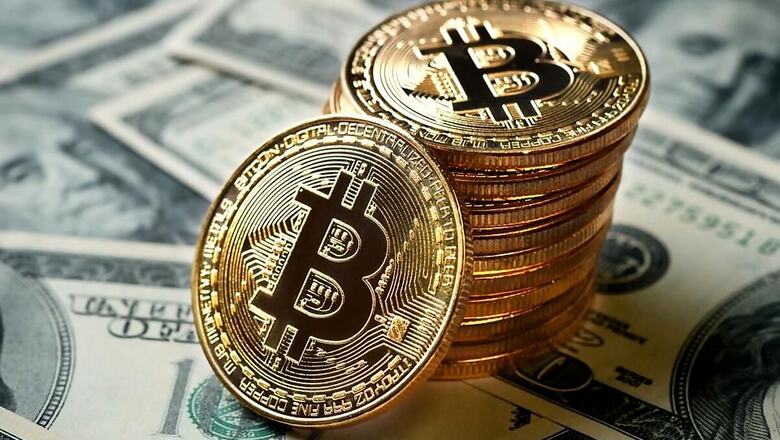
views
Tesla buying Bitcoin by the billions has arguably been the biggest news in the crypto world of late. Even as the Indian government continues to be bearish on cryptocurrencies apart from those controlled centrally, Tesla spending $1.5 billion on Bitcoin to keep the digital currency on its sheets is the first such move by a big corporation, underlining a faint presence of Bitcoin’s everyday applications in its regular discourse. However, Tesla’s investment in Bitcoin is unusual for a publicly listed company, particularly given the most common risks of cryptocurrencies. This very unusual move may have actually put the entire blockchain and cryptography technologies at a key crossroad.
To understand this crossroad, it is important to understand how cryptocurrencies work. The fundamental theory behind cryptocurrencies is its decentralised nature. This means that unlike fiat (or centralised) currencies that are held, issued and controlled by central authorities such as a national government, these decentralised cryptocurrencies do not have a central authority issuing new currency, or regulating the same. Bitcoin, for instance, is finite – there are 21 million Bitcoins in the world. This essentially means that on a fundamental level, the fears of rampant and manipulated inflation, as well as deliberate devaluation, are factors that no government or corporation can control.
Companies, and publicly traded ones in particular, are the unlikeliest customers of volatility. With public money in question, it isn’t difficult to imagine why investors may not be comfortable with a company holding stake in something that is intrinsically volatile. With Bitcoin, it isn’t impossible, at least in theory, for Tesla’s $1.5 billion investment in the digital currency to be wiped out in a matter of days. Interestingly, though, it is exactly this factor that makes Tesla’s Bitcoin move a bold, stand-out one. Potentially, this can contribute significantly to addressing a number of major concerns around crypto-coins – volatility, everyday use cases, and stable holdings controlling demand and supply, being a few of the points.
As Graham Tanaka, CIO of Tanaka Capital Management, said to Reuters, “This may be a signal that it (Tesla) expects the cryptocurrency will emerge as another store of long-term value alongside the dollar and gold. Companies are very careful when it comes down to their reserves, and this doesn’t appear to be a flash in the pan.” In other words, this sends a message in corporate circles that cryptocurrencies may not for long remain bit-part contributors, mostly in specialised transactions.
Blockchain consultant Maya Zehavi agreed to this very point, highlighting that the “downsides of staying on the sidelines (in terms of investing in Bitcoin) will only become costlier over time.” Breaking things down in terms of value, Michael Saylor, CEO of MicroStrategy Inc, said in an interview with Reuters, “The scarcest asset in the world is Bitcoin – it’s digital gold, and gold will lose out to Bitcoin in reallocations. If we bought gold instead of Bitcoin, we would be down $2 billion and it would have been a disaster. Once people start thinking about what they want, which is a non-sovereign, safe-haven store of value, they’re going to realise that Bitcoin does the job of gold better. You will be seeing all of the institutional flows move out of gold into Bitcoin.”
It is, in a way, a validation moment for blockchain technology in the sense that for the first time, Bitcoin has been viewed as a finite, controllable asset that can be a major corporate investment target. Despite being limited in volume, Bitcoin’s flexibility gives it divisibility of up to a hundred-millionth point. This means that users can actually buy one-hundred-millionth of a Bitcoin, or 0.00000001 BTC. In other words, for 1 Indian rupee, an individual can purchase 33x the smallest denomination of Bitcoin – a factor that adds to the usability of cryptocurrencies in everyday transactions, and multiplies the scope of more individuals buying Bitcoin, Ethereum, or other decentralised cryptocurrencies in the long run.
Even for nations that remain negative on the new technology, Tesla’s move will have laid an establishment for digital currency adoption. If the projections do hold out, while the volatility fear cannot be wiped out entirely, it can be a major moment for blockchain and crypto technologies to become mainstream, and for the idea of centralised money to be threatened in due course of time.
Read all the Latest News, Breaking News and Coronavirus News here















Comments
0 comment